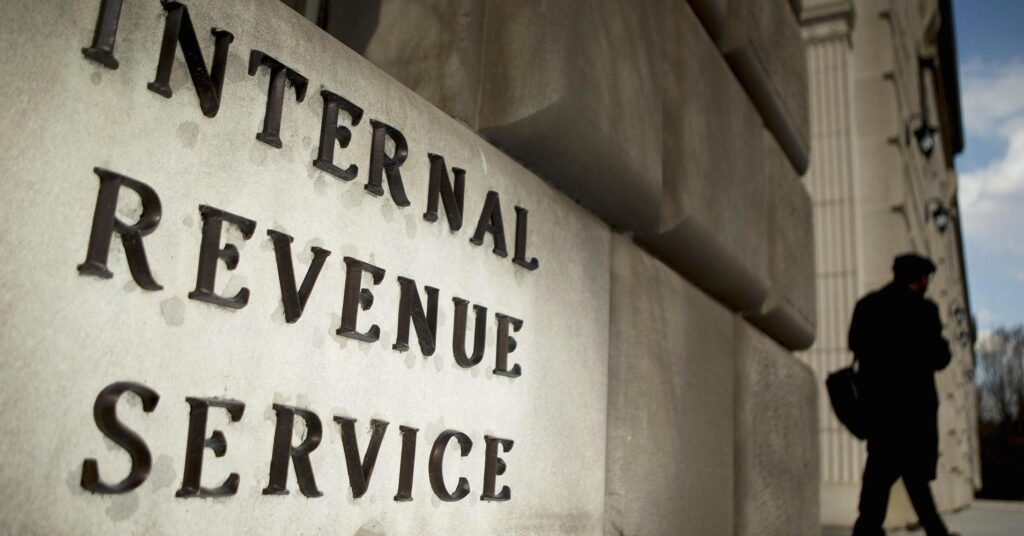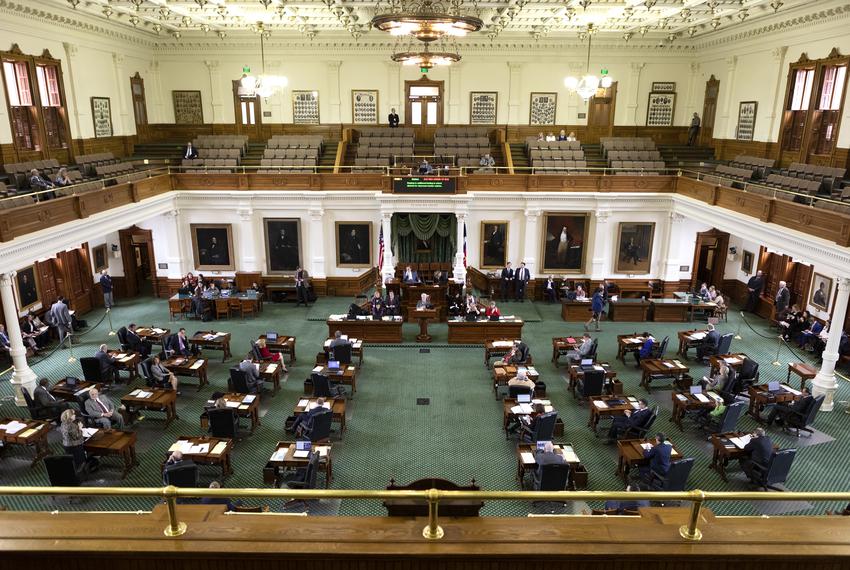Monochrome Asset Management, a crypto investment firm based in Australia, has made an update to its application, aiming to introduce a spot Bitcoin exchange-traded fund (ETF) on the Australian Securities Exchange (ASX) in collaboration with Vasco Trustees.
The newly proposed ETF, called the Monochrome Bitcoin ETF, will provide direct exposure to Bitcoin and Ether (ETH) for retail investors in Australia, as stated in the company’s announcement on July 14.
Monochrome CEO Jeff Yew explained in an interview with Cointelegraph that the Bitcoin ETF would allow Australian retail investors to engage with Bitcoin in a regulated environment, offering them the freedom to utilize this asset class as they see fit while operating within the established regulatory framework.
Yew emphasized the advantage of investor protection that comes with a regulated ETF, in contrast to unregulated exchanges where such safeguards may be lacking.
Yew further expressed his belief that the introduction of a Bitcoin ETF on the ASX would convey a significant message to traditional investors, signaling the end of the unregulated “Wild West” phase.
The ETF’s existence would assure investors of a familiar, structured, and protected environment, enhancing their confidence in the crypto market.
READ MORE: Bitcoin ETF Approval Could Act as Government’s ‘Seal of Approval’
Vasco, Monochrome’s “Responsible Entity Partner,” holds the necessary authorization under an Australian Financial Services Licence to offer regulated exposure to cryptocurrencies to retail investors, as outlined by the company.
Spot Bitcoin ETF applications have garnered considerable attention in the industry recently, particularly in the United States.
Over the past few weeks, major financial firms such as Fidelity, Invesco, Wisdom Tree, Valkyrie, and the $10 trillion asset management giant BlackRock have all submitted filings for spot Bitcoin ETFs, indicating growing interest in providing regulated exposure to digital assets.
The introduction of a Bitcoin ETF on the ASX through Monochrome Asset Management’s application update marks a significant step toward facilitating mainstream adoption and regulatory acceptance of cryptocurrencies in Australia.
Other Stories:
United States DoJ Moves $299 Million Worth of Bitcoin in Recent Transactions
Elon Musk Launches xAI: A New Venture to Unravel the Mysteries of the Universe
Binance’s BNB Beacon Chain Set to Halt New Block Production in Upcoming Hard Fork for Enhanced
The European Securities and Markets Authority (ESMA), the regulatory body for financial markets in the European Union, has released a consultative paper on Markets in Crypto-Assets (MiCA) mandates.
This paper, which is the first of three consultative packages, focuses on the technical specifications for crypto asset service providers (CASPs).
Under MiCA, entities that are already licensed are presumed to be capable of providing crypto-asset services.
However, they will be required to provide additional information to the national competent authorities (NCAs) of their respective countries through notifications.
The consultative paper seeks feedback on regulatory and technical standards for these notifications from CASPs.
ESMA is also seeking feedback on regulatory and technical standards related to CASP authorization applications, handling complaints, managing and preventing conflicts of interest, and disclosures to NCAs by entities planning to acquire shares in a CASP.
READ MORE: US Senate Committee Seeks Input on Taxation of Digital Assets
Interested stakeholders and market participants have until September 20 to respond to the consultative paper.
ESMA plans to submit a draft of the finalized standards to the European Commission by June 30, 2024, as mandated by MiCA.
The second consultative package will be released in October, followed by the third in the first quarter of 2024, aligning with the deadlines set for ESMA in MiCA.
In addition to specific feedback, ESMA has posed four general questions to respondents.
These questions aim to gather more insight into the current and planned activities of market participants and their expectations for the future development of the EU crypto-asset markets.
The questions cover topics such as expected turnover, the number of white papers respondents plan to publish, and their utilization of on-chain and off-chain trading.
MiCA, approved by the European Parliament on April 20, will be implemented in three stages between 2024 and 2025.
It represents a comprehensive regulatory framework for crypto assets within the European Union. The consultation process conducted by ESMA is an important step in shaping the technical standards and guidelines that will govern the operation of CASPs under MiCA.
PwC recently published its fifth annual global crypto hedge fund report on July 12, which was based on surveys conducted in the first quarter of 2023 among both crypto-native and traditional hedge funds.
Despite the recent crypto winter and ongoing regulatory uncertainties, the report revealed a predominantly positive outlook among the funds.
According to the report, crypto-native hedge funds are actively working towards rebuilding confidence and ensuring their needs are heard.
An overwhelming majority of these funds (93%) expect the market cap to rise over the course of the year. Interestingly, more than half of them (53%) reported no exposure to FTX or the Terra Luna ecosystem.
The report also highlighted that most of the funds performed better than the price of Bitcoin (BTC), which stood at $30,553 in 2022.
This finding emphasizes the popularity of crypto hedge funds as investment vehicles for those seeking exposure to the crypto-asset market.
READ MORE: US Senate Committee Seeks Input on Taxation of Digital Assets
While over half of the funds (54%) operate in the United States, they did not respond differently from others to U.S. regulations. In fact, 42% of these funds stated that they do not expect the regulations to impact them significantly.
The report further revealed that the funds expressed a desire for trading venues to implement certain requirements, including asset segregation (75%), financial audits (62%), and an independent statement of reserve assets (60%).
The report also shed light on the limited impact of tokenization within the sector. Only 15% of the surveyed funds are considering investments in tokenized securities, and merely 4% tokenize units within their own funds.
Regarding traditional hedge funds, the proportion investing in crypto decreased from 37% in 2022 to 29% in 2023.
Among those still investing in crypto, 62% allocate less than 5% of their assets under management to the crypto market, while only 8% hold more than 20% in crypto.
The survey found that 46% of these funds plan to increase their crypto investments this year, a decline from 67% in the previous year. Notably, none of the respondents mentioned a decrease in their capital deployed in crypto.
For traditional funds that do not invest in crypto, “client reaction or reputational risk” has become the primary reason, surpassing “regulatory uncertainty.”
Moreover, 40% of these funds stated that the removal of regulatory barriers would not motivate them to begin investing in crypto.
The survey was conducted in collaboration with CoinShares, an alternative asset manager, with 131 crypto-native funds participating. Data from 59 traditional hedge funds was obtained by the Alternative Investment Management Association.
United States Senators Cynthia Lummis and Kirsten Gillibrand are set to reintroduce the Responsible Financial Innovation Act, a piece of legislation aimed at establishing a comprehensive regulatory framework for digital assets.
The bipartisan bill, which had been tabled in the previous session of Congress, will be reintroduced to the Senate on July 12.
The main objective of the Lummis-Gillibrand bill is to provide clarity on the roles of regulatory bodies such as the Securities and Exchange Commission (SEC) and Commodity Futures Trading Commission in overseeing digital assets.
Additionally, the legislation aims to enhance consumer protection measures within the digital asset space.
Originally introduced in June 2022, during a period marked by a significant crypto market crash, the bill seeks to address the aftermath of the market downturn.
It includes updates to the U.S. tax code that would allow the industry to finance its own oversight and implement safeguards to prevent events like the collapse of FTX, a crypto exchange that occurred after the bill’s initial introduction in November 2022.
READ MORE: Cathie Wood’s ARK Invest Takes Profits from Coinbase Holdings
The legislation was prompted by the collapse of Terraform Labs, a South Korea-based firm, which experienced the depegging of its algorithmic stablecoin from the U.S. dollar.
As a response, the bill will require payment stablecoins to be exclusively issued by depository institutions.
Critics of U.S. regulators have argued that there is a lack of clarity in the regulatory environment, which allows firms to operate without fear of enforcement actions.
The Lummis-Gillibrand bill has garnered praise for its bipartisan approach during a time when some elected officials have politicized certain aspects of the crypto space.
While the Responsible Financial Innovation Act represents one option, other legislators in the House of Representatives have proposed alternative legislation to address the regulatory framework for cryptocurrencies.
A discussion draft released in June suggests limiting the SEC’s authority over crypto firms, while the House Financial Services Committee has drafted legislation proposing that the Federal Reserve become the primary regulator responsible for establishing stablecoin requirements.
Overall, the reintroduction of the Responsible Financial Innovation Act reflects ongoing efforts by U.S. lawmakers to develop a comprehensive and balanced regulatory framework for digital assets, with the aim of protecting consumers and promoting innovation within the industry.
Hive Blockchain, a cryptocurrency mining firm based in Vancouver, Canada, has undergone a rebranding process and is now known as Hive Digital Technologies.
The name change aims to highlight the company’s expansion into artificial intelligence (AI) and its evolving focus on revenue opportunities in graphics processing units (GPUs) and cloud computing.
By dropping “blockchain” from its name, Hive seeks to better represent its mission of driving advancements in AI and supporting the new Web3 ecosystem.
The CEO of Hive, Aydin Kilic, emphasized that the company’s GPU Cloud business requires a strategic approach that goes beyond blockchain.
Hive is focused on building infrastructure for emerging digital technologies and intends to leverage its large fleet of GPUs to grow its cloud hosting business.
READ MORE: US Senate Committee Seeks Input on Taxation of Digital Assets
In addition, Hive plans to use its extensive fleet of 38,000 Nvidia GPUs to offer small and medium-sized businesses a more efficient alternative to major cloud service providers.
Kilic expressed confidence in the increasing demand for GPU compute driven by AI and machine learning in the future.
While many crypto mining companies concentrate on mining proof-of-work cryptocurrencies like Bitcoin, Hive stood out by utilizing GPUs to mine Ether, the native cryptocurrency of the Ethereum network, on a large scale.
However, with the completion of the Ethereum Merge in September 2022, which transitioned the Ethereum blockchain to a proof-of-stake consensus mechanism, the profitability of GPU mining for Ether significantly declined.
As a result, Hive has diversified its focus and expanded into AI and other revenue-generating opportunities.
Hive’s rebranding follows a similar move made by another mining company, Riot Blockchain, which changed its name to Riot Platforms on January 3.
Riot’s decision reflected its increasingly diversified business operations beyond the scope of blockchain mining.
The rebranded Hive Digital Technologies is positioning itself to capitalize on the growing demand for GPU compute in AI and machine learning.
By expanding its focus beyond blockchain, Hive aims to leverage its expertise and resources to establish a prominent presence in the evolving digital tech industry and support the development of the new Web3 ecosystem.
Prosecutors and the Internal Revenue Service (IRS) in the United States are reportedly conducting investigations into wealthy individuals involved in cryptocurrency trading and fund management, suspecting them of illegally benefiting from Puerto Rico’s tax incentives.
Bloomberg’s report on June 12 revealed that civil and criminal cases are being built against hedge fund managers, crypto traders, and other affluent Americans who may have misrepresented their residency and income to exploit the tax breaks.
The investigations extend to attorneys and accountants who promoted Puerto Rico’s tax program, and it is anticipated that at least two criminal investigations will lead to charges in the near future. Charges under scrutiny include conspiracy and wire fraud.
READ MORE: United States Government Accountability Office Publishes Blockchain Report
Attorney Carlos Ortiz shared insights from a conversation with a U.S. federal prosecutor, stating that they are collaborating with IRS agents and Puerto Rico officials. Ortiz summarized the situation by saying, “The message is the noose is tightening.”
Since the implementation of Puerto Rico’s new tax policy in 2012, over 5,000 U.S. individuals have relocated to the territory, attracted by the potential savings in federal income tax.
The tax policy provides a 100% exemption on dividends, a 60% exemption on municipal taxes, and zero federal taxes on income earned within Puerto Rico.
Furthermore, more than 3,600 businesses have enjoyed exemption from taxes on dividends, only paying a 4% tax on exports.
While these tax benefits are among the most lenient globally, the requirements to qualify for them are stringent.
Applicants must prove residency on the island for a minimum of 183 days annually and establish Puerto Rico as their “tax home.”
According to lawyers familiar with the tax regime, the strict eligibility criteria have tempted many individuals to manipulate numbers and engage in fraudulent activities on their tax returns.
Renowned figures such as gold enthusiast Peter Schiff and crypto investor Michael Terpin have relocated to Puerto Rico for tax purposes.
However, Schiff’s bank was recently shut down by Puerto Rican regulators for failing to meet minimum capital requirements.
Speaking at Miami’s annual Bitcoin Conference, Terpin praised Puerto Rico as the only place where one can avoid paying global taxes without relinquishing U.S. citizenship.
Despite the potential scrutiny, Terpin expressed confidence in his meticulous record-keeping and willingness to face an audit.
While wealthy residents laud the tax breaks for attracting top fund managers and entrepreneurs to the island, protests have arisen, claiming that the influx of low-tax “colonizers” has raised living costs.
The tax program remains a subject of contention in Puerto Rico.
The United States Department of Justice (DOJ) has reportedly conducted a series of transactions involving a cryptocurrency wallet associated with them, moving approximately 9,825.25 Bitcoin worth around $299 million on July 12.
The purpose of these transactions and the current whereabouts of the Bitcoin remain unclear.
Initially, around 9,825 Bitcoin associated with the Silk Road seizure were sent in two transactions to three addresses at approximately 1:00 pm UTC.
The majority of these coins, equivalent to 8,200 BTC worth nearly $250 million, were transferred to a single address.
Subsequently, this address split the total amount across 101 separate addresses a little over an hour later.
READ MORE: United States Government Accountability Office Publishes Blockchain Report
The U.S. government had previously announced its plans to sell the remaining Bitcoin from the Silk Road seizure in four batches throughout the year.
It is speculated that the recent transactions may be part of the government’s liquidity testing strategies. On March 7, 2023, one account involved in the batch transactions reportedly made a profit of $237,934,919 from BTC holdings not associated with the July 12 transactions.
However, another account that received 9,825.6 BTC from the DOJ during the March 7 batch distributed the coins among 101 accounts.
Subsequently, this account, along with 599 others, sent approximately 0.1 BTC (about $3,032) to yet another account, which then divided its holdings of approximately 51 BTC across 37 addresses.
The exact nature and purpose of these transactions have sparked speculation within the crypto community.
With over 800 wallet addresses involved, it has become increasingly challenging to track the U.S. government’s intentions with each coin.
This uncertainty has led some to fear that the Bitcoin market may be negatively impacted or that it could disrupt the ongoing bull run in the cryptocurrency economy, prompting investors to abandon their positions.
However, others dismiss these concerns as unnecessary fear, uncertainty, and doubt.
Despite the significant number of transactions, the market movement of BTC remained relatively stable, with less than 1% change in value over six hours after the transactions were conducted.
As the situation continues to unfold, the crypto community awaits further information regarding the DOJ’s actions and their potential impact on the cryptocurrency market.
Mike Novogratz, founder of Galaxy Digital, believes the United States government and the U.S. Securities and Exchange Commission (SEC) granting approval for a Bitcoin exchange-traded fund (ETF) would serve as a significant endorsement for the cryptocurrency.
Speaking in a recent Bloomberg TV interview, he noted that such approval could catalyze wider adoption as it would offer an easy entry point for many who are still hesitant to invest in cryptocurrencies.
Novogratz highlighted the influx of spot Bitcoin ETF applications before the SEC, including one from the $10 trillion asset manager, BlackRock. “BlackRock, Invesco, and other ETF providers signify a real indicator that adoption is forthcoming,” Novogratz stated.
READ MORE: Cathie Wood’s ARK Invest Takes Profits from Coinbase Holdings
There’s a substantial infrastructure in place for these ETFs.
Proposals from BlackRock, Valkyrie, Invesco, VanEck, WisdomTree, Fidelity, and a joint fund by ARK Invest and 21Shares are awaiting approval. Novogratz anticipates that several, if not all, of these ETFs will likely receive the green light from the SEC.
He stated, “The SEC won’t just approve one; this will lead to these huge sales teams enabling access for people previously without.”
SEC Chair Gary Gensler has asserted that except for Bitcoin, other crypto assets fall under his agency’s jurisdiction, as they typically involve known developers and anticipated profits.
Regarding the likelihood of Galaxy and Invesco’s spot Bitcoin ETF obtaining a listing before the end of the year, Novogratz remained noncommittal.
“The SEC has been notably tough and unyielding on crypto. No significant player has yet made it through the listing process.
We’re engaged in that process, but it’s been lengthy and challenging,” he commented.
Novogratz is also optimistic about Bitcoin’s price trajectory. He predicted a year-end high for Bitcoin, stating that if the peak is breached, the cryptocurrency will enjoy a substantial uptrend.
He concluded, “A shift in the SEC’s stance or an administrative change would probably be needed for meaningful progress in U.S. crypto regulation.”
The recent surge in filings for spot Bitcoin exchange-traded funds (ETFs) signifies a significant validation for Bitcoin, according to Michael Sonnenshein, the CEO of Grayscale Investments.
Sonnenshein, in an interview on CNBC’s Last Call, dismissed the idea that BlackRock’s entry into the Bitcoin ETF race diminished its appeal.
He emphasized that BlackRock’s involvement adds credibility to the asset class and demonstrates its longevity.
READ MORE: Arkham Introduces World’s First On-Chain Intelligence Exchange Amidst Huge Controversy
Over the past month alone, seven prominent institutional firms, including BlackRock, have submitted applications for spot Bitcoin ETFs in the United States.
If approved, these ETFs would offer both institutional and retail investors in the U.S. a straightforward and compliant avenue to gain exposure to Bitcoin’s price without actually owning the digital currency.
Sonnenshein highlighted the tried and tested nature of the ETF structure, which has facilitated access to various assets like commodities and stocks.
He emphasized that Bitcoin is an enduring asset that investors desire and deserve access to.
Previously, Grayscale provided U.S. investors with an indirect method of gaining exposure to Bitcoin through the Grayscale Bitcoin Trust (GBTC), which allowed trading of shares tied to large Bitcoin holdings.
However, the company intends to convert the GBTC into a spot Bitcoin ETF.
This transition would offer investors a more streamlined way to trade Bitcoin’s price, eliminating the discount to net asset value associated with GBTC.
Sonnenshein described the move to an ETF structure as a crucial development, providing investors with the additional safeguards they seek.
In June 2022, Grayscale filed a lawsuit against the United States Securities and Exchange Commission (SEC) after the rejection of its 2021 application to convert GBTC into an ETF.
Sonnenshein stated that a successful outcome in this legal challenge would unlock billions of dollars in investor capital.
Following BlackRock’s filing for a spot Bitcoin ETF on June 15, the price of Bitcoin surged by over 20%, reaching a year-high of $31,460 on July 6. As of now, it is trading at $30,633.
These developments indicate a growing interest in Bitcoin from institutional players and the potential for increased mainstream adoption through the introduction of regulated ETFs.
Overall, the flood of spot Bitcoin ETF filings represents a moment of validation for Bitcoin as a legitimate asset class, with the potential to broaden its accessibility to investors while providing additional protection and market opportunities.
On July 11, the United States Senate Financial Services Committee Chair Ron Wyden and ranking member Mike Crapo reached out to the digital asset community through an open letter, seeking input on the taxation of digital assets.
Recognizing the highly complex nature of this issue, the senators provided background reading from the Joint Committee on Taxation to assist respondents in formulating their answers.
The senators acknowledged that the Internal Revenue Code of 1986 does not offer a straightforward classification for digital assets.
As a result, they posed a series of questions covering nine subject areas to gain a deeper understanding of the challenges surrounding the taxation of digital assets.
READ MORE: Chinese Government Tightens Regulations on AI Development
They explained that the Committee on Finance had initiated a bipartisan effort to identify key questions at the intersection of digital assets and tax law.
The letter explored various topics, including fair value (mark-to-market) accounting, the trading safe harbor to encourage foreign investment, digital asset loans, wash sales, constructive sales (related to short-selling), income from staking and mining, “nonfunctional currency,” reporting by foreign firms, and valuation and substantiation on an exchange.
Throughout the letter, specific sections of the tax code were referenced to provide context for the questions.
While the Internal Revenue Service (IRS) has primarily focused on combating criminal activities related to cryptocurrencies, it has also begun taking a more proactive approach to income taxation.
Earlier this year, the IRS proudly announced that it had seized a total of $10 billion in crypto as part of its law enforcement efforts.
In a recent case, the IRS demonstrated its increased emphasis on income taxation by issuing a summons to the crypto exchange Kraken in 2021.
The summons demanded user information on all transactions exceeding $20,000. On June 30, the District Court for the Northern District of California ordered Kraken to comply with the IRS’s request.
Interested parties have until September 8 to respond to the Senate committee’s letter, providing their insights and perspectives on the taxation of digital assets.
This outreach demonstrates the senators’ commitment to understanding the complexities involved and seeking input from the digital asset community to shape future tax policies.












